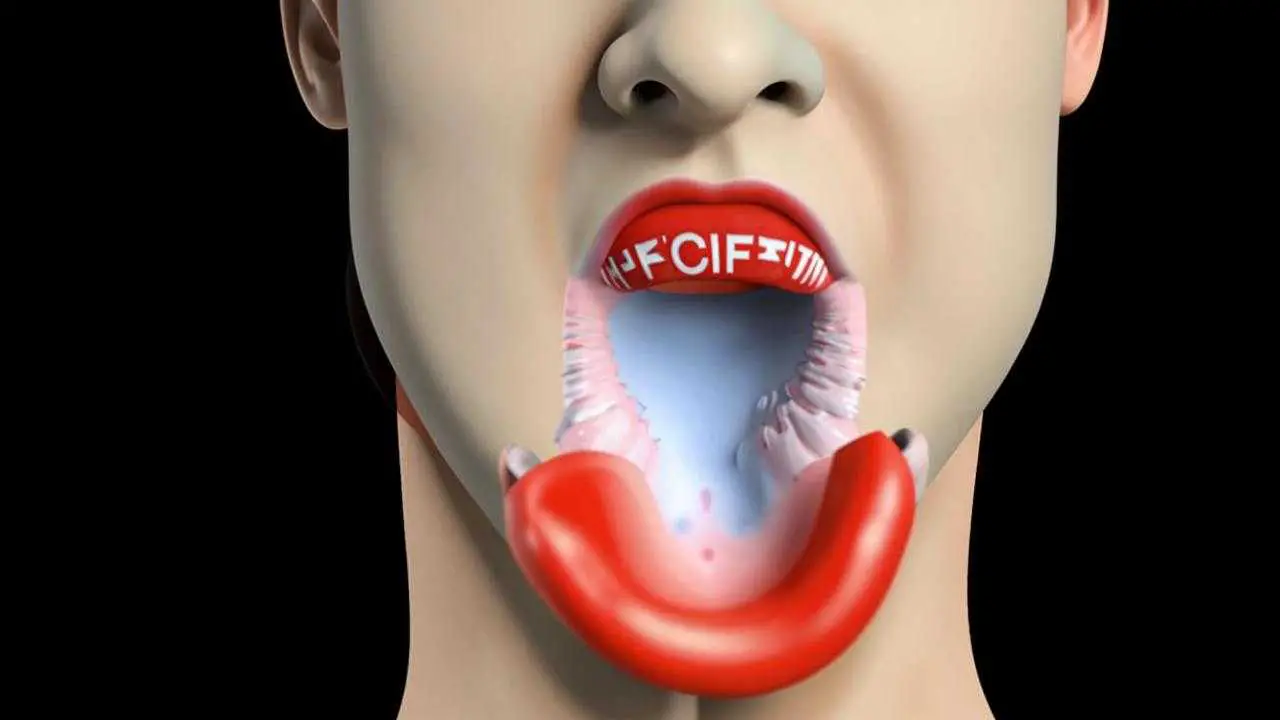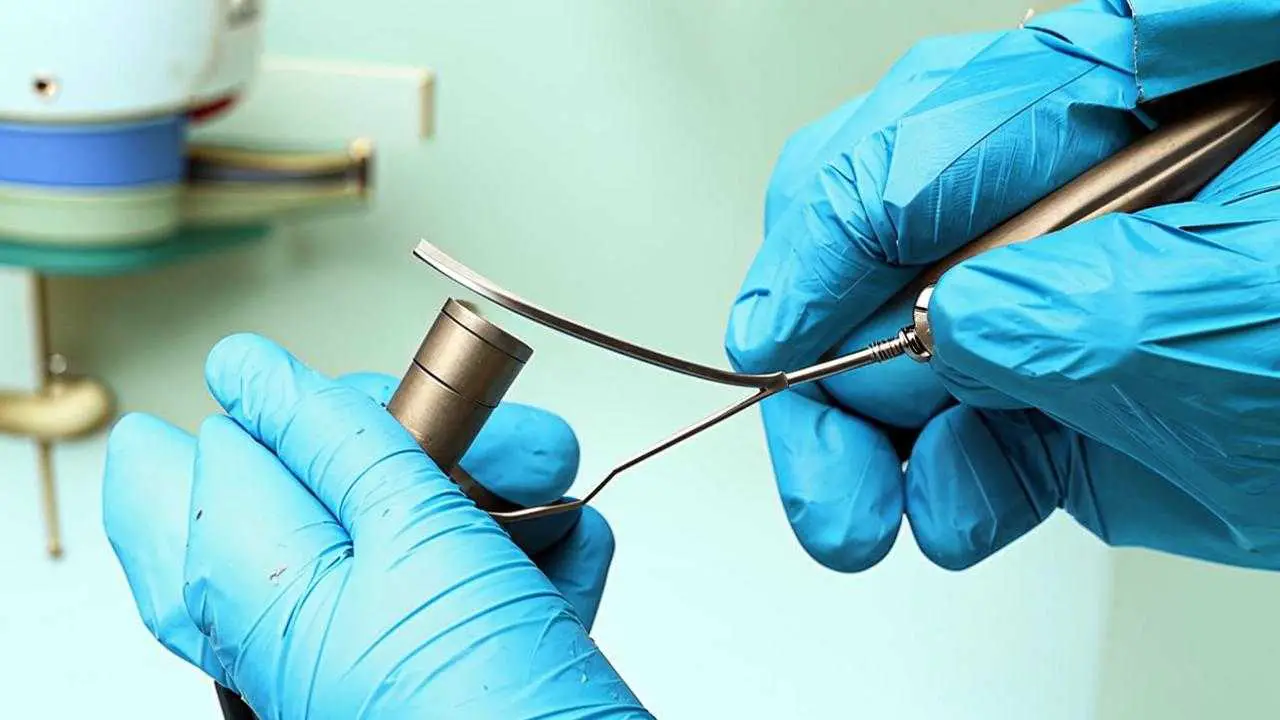It is so nice to complete all the denture procedures, receive your new dentures, smile openly and talk with a row of straight, white teeth. Unfortunately, the impression is sometimes spoiled by the fact that the gum under the denture hurts.
In the first few days after denture placement, discomfort and slight redness under the denture is a normal reaction of the body to a foreign body. Dentists usually warn you about this possibility. They give recommendations on how to care for the oral cavity during the period of getting used to the restoration.
Inflammation of the gums after prosthetics: symptoms
If the condition of the mucous membranes does not improve after 5-7 days, redness, swelling, painful sensations increase, it is necessary to immediately consult a doctor. Also, you need to make an appointment if:
- chewing is so uncomfortable that the patient prefers not to do it at all;
- can not close the jaws or when closing the bite is disturbed;
- the restoration does not fit properly, “rides” under load;
- the gums become ulcerated and bleed;
- mucous membranes are covered with rashes.
You should not delay a visit if the rash spreads all over the body, accompanied by itching, sneezing, swelling, other signs of allergic reaction
Causes of inflammation of the gum from dentures
Cause inflammation of mucous membranes various factors. Some of them are associated with the peculiarities of the patient’s organism, others – with a violation of the technology of manufacturing the restoration, others are provoked by insufficient hygiene.
Stomatitis
The most common reaction to prosthetics is stomatitis. It can be:
- traumatic;
- toxic;
- contact (allergic).
Traumatic
The restoration traumatizes the mucosal tissue with a sharp edge, protrusion, or too deep a base. In the place of trauma, swelling and redness occur. In such cases, correction of the prosthesis is recommended. If this is not done, a decubital (decubitus) ulcer will appear. This is a very painful formation. The mucosa around the ulcer is swollen, red, and the ulcer itself is covered with gray plaque. It looks scary, but it quickly goes away once the traumatic factor is removed. If this is delayed, the ulcer will heal and the scar will interfere with the fit and fixation of the structure.
Toxic
This type of stomatitis provokes:
- Bacteria that multiply due to poor care of the restoration. Sometimes a fungus even forms on the denture. It releases toxins that cause inflammation.
- Chemical reactions that occur in the mouth as a result of the interaction of heavy metals and trace elements from the metal parts of partial dentures. This provoke the appearance of galvanic currents in the oral cavity. Especially if there are already dental alloy crowns there. The patient experiences a sensation of electrical discharges, metallic taste, dryness. The gums turn red, become friable.
If the gums are swollen after prosthetics, it is worth trying to remove the construction for a while. The disappearance of symptoms will confirm that the problem is galvanic syndrome.
Contact allergic stomatitis
Most often develops on the monomer (chemical compound) in acrylic dentures. But it happens that the cause can not be determined at all. It can be a reaction to dyes, thickeners and other components of the prosthesis. The peculiarity of contact stomatitis – clearly delineated boundaries. The mucosa in the contact areas of the restoration is bright red, smooth, shiny.
Allergic reaction can acquire a generalized (general) character. It is expressed in rashes, dermatitis, eczema. With allergies, complications may develop in the form of Quincke’s edema or bronchial asthma.
Allergic inflammation of the gum from the prosthesis requires its replacement, it is life-threatening to use such a restoration.
Gingivitis
If the rules of hygiene are violated, the number of bacteria in the mouth increases. They penetrate under the gums and cause their inflammation – gingivitis. Gums swell, redden, become loose, begin to bleed. Sensitivity increases, eating and hygienic procedures cause pain.
What to do if the gums under the denture hurt
During the period of getting used to the prosthesis can help herbal soothing baths, applications of rosehip oil, sea buckthorn. If the reaction to the restoration is not excessive, then in no case it is impossible to refuse it. Habituation takes some time (10-30 days) and small side effects should not frighten you.
In the case of inflamed gums under dentures, it is necessary to find out what caused it. This can only be done by a doctor. How to treat swollen gums, largely depends on the cause of inflammation.
With candidal stomatitis, antifungal therapy is prescribed. With bacterial – antibiotics.
With allergic reactions, a course of antihistamines and refusal of the design that causes allergies is necessary.
In complex therapy, antibacterial sprays and tablets for resorption (Hexapray, Hexaliz), immunomodulators (Derinat, Polyoxidonium), anti-inflammatory drugs (OCI), absorbents (lignin) and combined means (Stomatidine, Septogal) are used.
Rubbing of gums with dentures is eliminated by correction. The doctor saws off the protruding parts. If this does not help, rebasing (recreating the denture bed with a new layer) is performed.
In case of stomatitis, temporary relining is used. A conditioner, a soft, elastic mass, is applied to the denture bed. It takes longer to harden than plastic and has time to accept the relief of the base. After the manifestations of the disease disappear, the dentist or technician performs permanent rebasing, so that the restoration stops chafing.
Prevention
Proper preparation for prosthetics helps to reduce the risks of gingival inflammation when wearing a prosthesis.
This is a whole set of measures:
- oral cavity sanitation;
- treatment of retained teeth (for partial dentures);
- elimination of inflammation;
- promotion of general health.
The professionalism of the dentist and technician is also important. Large clinics make sure that doctors and technicians regularly upgrade their skills, keep abreast of the latest developments, apply new techniques. They have the opportunity to purchase expensive equipment and quality materials. Unfortunately, it is difficult to achieve this in smaller clinics.
According to scientists, satisfactory oral hygiene and proper care of the denture, significantly reduce the number of dentures in the denture. [1]cases of gum pain after dentures.
Denture care
Hygienic measures include denture care and oral hygiene.
To avoid gum inflammation after dentures, a few simple recommendations should be followed:
- After a period of habituation, remove the denture at night;
- rinse your mouth with water after meals and at night. You can use dental elixirs;
- Brush the retained teeth 2 times a day;
- self-massage the gums and palate with fingers;
- rinse the denture after each meal;
- clean the denture with a special brush and paste 2 times a day;
- regularly treat the dentures with disinfectant solutions.
To disinfect removable restorations, ready-made solutions or tablets that dissolve in water are used. The denture is dipped into the solution for a certain amount of time, most often an hour.
Various creams and gels help to prevent chafing and improve fixation. The most famous of them: Lakalut and Korega.
Designs should be stored in a humid environment: a special container or a glass with water.
Proper preparation, compliance with the technology of manufacturing, hygiene procedures and regular follow-up with the dentist will help to avoid situations when the gum after dentures hurts and becomes inflamed.
[1] Source: http://rep.bsmu.by/


